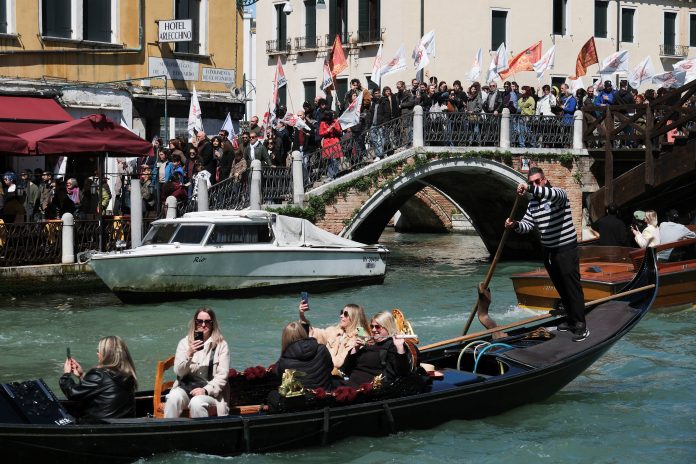Tourists arriving in Venice should not have to pay the “absurd” entrance fee charged to day-trippers when it is introduced today, the city’s former mayor has said.
Massimo Cacciari, who was mayor of the city from 1993 to 2000 and from 2005 to 2010, stressed that tourists already “pay for everything” and that he was “suggesting that everyone should not pay” the €5 (£4.30) levy, which comes into effect on Thursday.
He said day visitors already pay “three times as much as residents” for public transport in the city and that all travellers contribute to the longevity of Venice’s restaurants and museums.
The former mayor also said he would “like to see” city officials “justify in court the legality of the city’s entry tax.” He told Adnkronos news agency:
“What are they going to do, block people’s movement, send out the police to ask to see everyone’s papers?”
Venice will become the first city in the world to charge entry fees for day-trippers. This is intended to reduce the number of short-stay tourists who create unmanageable congestion during peak hours.
The “tourist tax” has caused much controversy, with several committees and residents’ associations planning protests to coincide with today’s launch in Italy. Representatives argue that the levy will not solve fundamental problems, but will only tarnish the public image of the city.
Under the new rules, the charge will be levied on tourists travelling through the city without an overnight stay. Authorities hope it will help regulate the flow of the estimated 30 million tourists who are attracted to the city’s history and romantic canals each year.
The scheme will be implemented only on the 29 busiest days of the calendar year between now and May 5, and on weekends until July 14 within certain time slots.
Those who choose to stay in a hotel overnight will be exempt from the charge. Residents, commuters, students and children under 14 will also be exempt from the fee.
Venice’s population has been steadily declining in recent years, in part because residents are leaving the city and renting out their flats to tourists. In turn, this reduces the supply of affordable housing and makes it more expensive for residents.
Barcelona has faced a similar problem and in 2021 set a precedent by becoming the first European city to ban short-term rentals of private rooms for up to 31 days. Rome and Milan, two of Italy’s most touristy cities, are also looking to restrict short-term room rentals as rents rise and wages fall.
The Venetians are also concerned that short-term tourists spend less than those who rent rooms or book hotels for several days.
